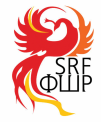new russian writing
Previously, a Glas - SRF partnership
Blog postings 2016-
Vertical Divider
|
Useful information
Some Post-Congress Thoughts on the Value of Translation
|
|
"2017", in Russian and in English translation, and other novels by Slavnikova are available on loan from the SRF Library.
|
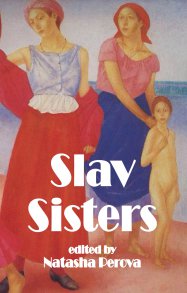

|
Levitin’s only English translations so far appear in the Glas book of his three long pieces: the above-mentioned Total Impropriety (excerpt from the novel), With Only Sandals on his Feet, and A Jewish God in Paris, all devoted to theatre life.
There is a copy of this book in the Scotland-Russia Forum Library. |
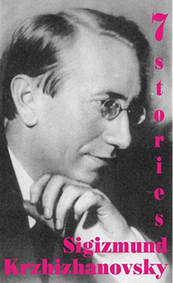
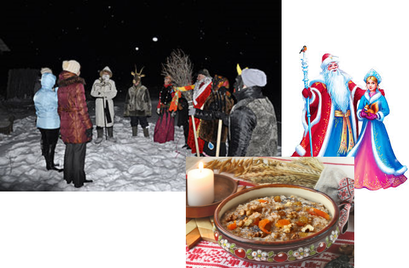 Kolyada, kutia and Ded Moroz
Kolyada, kutia and Ded Moroz
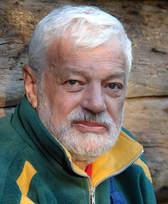 Yuri Brodsky.
Source: Novaya Gazeta
Yuri Brodsky.
Source: Novaya Gazeta
|
Glasgow University Russian Dept recently posted on Facebook (Eastern and Central European Cultures at SMLC, University of Glasgow, 10 July 2017):
"We have some fantastic news about our centenary: thanks to the help of the Institut Perevoda and of the Russian Consulate in Edinburgh, we will have the honour of having Ludmila Ulitskaya with us! More details to follow over the next weeks!" The university is celebrating the centenary of the Russian Dept in September. Ludmila Ulitskaya will be speaking at Glasgow University on 15 Sept and at Edinburgh University on 18 Sept. More information: Talks and conferences. |
